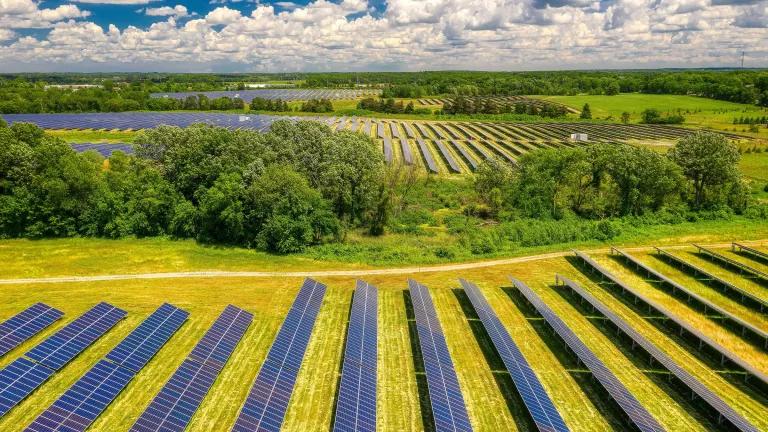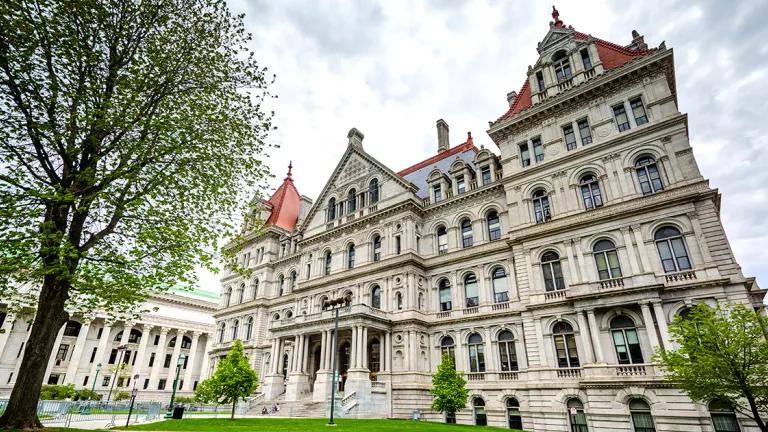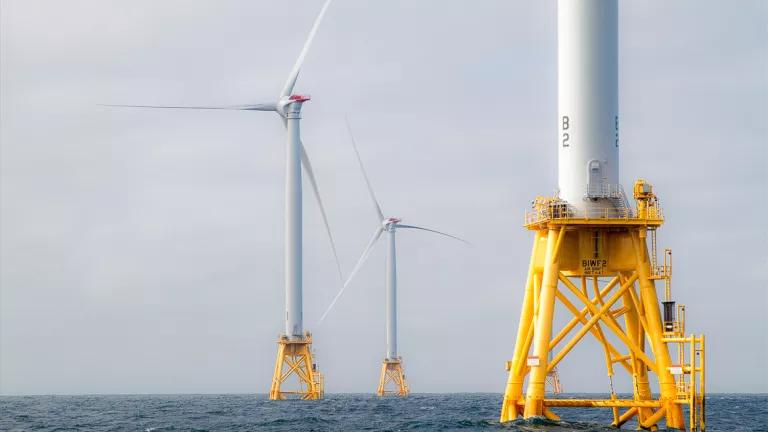Time to Act on Climate—with Tax Policy!
As Congress races toward its annual end of the year legislative push, members of Congress in both the House and Senate have heard from constituents through phone calls, emails, and at town hall meetings about the importance and urgency of addressing the climate crisis now. Americans from all walks of life are alarmed by the unending stream of climate policy rollbacks from the Trump administration and want to know what exactly this Congress is going to do to start making progress again on reducing greenhouse gas emissions. While there are many comprehensive ideas and plans being raised, sadly they face an uphill climb to pass in the Senate and be signed into law by this President.
So what answer could a member of congress give to their constituents? What has a real chance of becoming law that would also make an immediate impact on climate change?
The answer is tax policy. Specifically, updating and extending tax incentives for clean energy technologies. Something we think all members of Congress should support and pass before the end of this year.
A Critical Building Block
Good tax policy is a building block for and a critical piece of bigger policies that ultimately achieve our climate goals. Unless the tax code is designed to help us address climate change, it is likely that it is at least benignly (tax preferences like Last In, First Out accounting) and at worst actively (direct fossil fuel subsidies) standing in the way of climate progress. Overhauling our energy tax code is needed, but still a way off. However, simply extending and updating existing tax incentives could go a long way in setting the stage for deeper climate action.
Proven Effectiveness
Clean energy tax credits have proven that they can drive the deployment of clean energy and energy efficiency technologies. For example, the energy investment tax credit for solar photovoltaic power generation has helped that grow deployment from just 1 GW of installed capacity in 2011 to 51 GW in 2018 (enough to power around 12 million American homes). Wind energy experienced a similar growth through its production tax credit, growing from 45 GW of installed capacity in 2011 to 94 GW in 2018 (enough to power over 30 million American homes).(Source) Along with tax credits for energy efficient homes and commercial buildings, this growth has helped drive investment in businesses and grow millions of jobs across the country.
Unfortunately, the current state of clean energy incentives in our tax code is dire. Large credits like the electric vehicle credit, and the wind and solar incentives are phasing out, while important credits that reward cutting edge investments in offshore wind, electric grid scale energy storage, and building efficiency are expired and in need of updating to the standards and markets of today.
Growing Congressional Support
166 House Democrats recently demonstrated they recognize the important role tax credits can play in driving clean energy deployment and reducing climate impacts by signing onto a letter urging Speaker Pelosi to include as many clean energy tax policies as possible in must-pass legislation. This is a strong demonstration of unity within the Democratic caucus as the letter was supported by the Sustainable Energy and Environment Coalition, the Congressional Progressive Caucus and the New Democrat Coalition and the members signing it came from districts across the nation. This strong showing is complemented by the emerging leadership of Republican members who have cosponsored some of the bills below.
So what are the tax credit extensions and modifications that could make a difference right now in fighting climate change? Passage of the following ideas would greatly accelerate deployment of clean energy now and lay a solid foundation for future climate action and we are urging all members of Congress to support the inclusion of these ideas in a package that could pass both chambers and be signed into law. (see NRDC letters to Congress supporting these here and here and here).
- Plug-in EV and Hydrogen Fuel Cell Vehicle Tax Credit (H.R.2256/S. 1094: the Driving America Forward Act)
Transportation is the largest source of U.S. greenhouse gas (GHG) emissions, and cars and light-duty trucks are responsible for about 60 percent of those emissions. This bill will increase the number of plug-in electric vehicles that are eligible for the existing tax credit, and extend the tax credit for hydrogen fuel cell vehicles for another 10 years, thereby dramatically increasing the number of zero-emission vehicles on the road, improving air quality and cutting carbon emissions.
- Energy Storage Tax Credit (H.R.2096/ S. 1142: the Energy Storage Tax Incentive and Deployment Act of 2019).
This bipartisan legislation will extend to all eligible energy technologies, including batteries and electricity storage systems, the same 30 percent ITC currently offered to PV solar. Energy storage helps integrate more renewable energy onto our electric grid and increases grid reliability and resiliency. It also incentivizes innovation and could help speed development of new storage technologies. New battery types, stacks of concrete blocks, innovative pumped hydropower configurations, and hydrogen produced with clean electricity are just a few examples of resources that could potentially store clean energy across multiple days, weeks, or months.
- Offshore Wind Investment Tax Credit (H.R. 3473/S. 1957: The Offshore WIND Act OR H.R. 4887/S.1988: The Offshore Wind Power Act of 2019)
By extending the 30 percent investment tax credit for offshore wind facilities through 2025, this legislation will give us another tool in the climate fight by unlocking vast quantities of affordable, zero emissions electricity. All told, projects capable of producing more than 25,000 megawatts of power could be operational along the Atlantic Coast within the next 15 years, ensuring enough renewable electricity to power at least 12.5 million homes.(Source)
- Energy Efficiency Tax Credits (H.R. 4506/S. 2588: Home Energy Savings Act; H.R. 4646/ S. 2595: New Home Energy Efficiency Act; H.R.3051: Commercial, Low Emissions And Net Energy Reduction Buildings Act)
The residential and commercial sector accounts for 40 percent of U.S. energy consumption, so failing to update these incentives would create unnecessary energy waste and carbon emissions for many decades to come. Improved efficiency, on the other hand, will save businesses and consumers hundreds of millions of dollars annually on energy bills, reduce the demand on the utility grid, and make the U.S. more economically competitive. The Section 179D deduction for energy efficient commercial and multifamily buildings is expired and must be extended. The 25C incentive for homeowner efficiency improvements and Section 45L incentive for energy efficient new homes are outdated and should be modified to reflect new technologies and market conditions.
- Stopping the Investment Credit Phase Down (H.R. 3961/ S. 2289: Renewable Energy Extension Act of 2019)
This bill extends the Investment Tax Credit (ITC) for solar, wind and other clean energy technologies, and extends the 25D tax credit for residential energy efficient property for 5 years, to maximize greenhouse gas emissions reductions and provide technology parity. The ITC has helped to create hundreds of thousands of jobs and spurred billions of dollars in economic growth.
- Renewable Energy Transferability (H.R. 2704: The Renewable Energy Transferability Act)
This bipartisan bill would provide limited transferability for renewable energy ITCs and production tax credits, which would expand the pool of investors for existing renewable energy incentives and drive additional renewables deployment.
- Opening Up Master Limited Partnerships (H.R.3249/ S. 1841: Financing Our Energy Future Act)
Master Limited Partnerships are a tax structure that help finance large, capital-intensive projects in a cost-effective manner, but have only been available to traditional (fossil/ nuclear) energy projects. Opening the MLP structure to renewable energy sources would spur new private capital investments in renewable energy help level the playing field for energy investments.
What Comes Next?
Importantly, after Congress passes this short-term extenders package, we urge Congress to look at energy tax policy more holistically. Clean energy and energy efficiency lessen our nation’s reliance on fossil fuels, which have received billions more in tax subsidies than clean energy. After over a century of permanent subsidies, the United States fossil fuel industry remains one the worst polluting sectors in the economy, and we still rely on it heavily. Through the tax code Congress can rectify longstanding market distortions and address the catastrophic environmental externalities created by permanent fossil fuel subsidies. It should provide long-term, consistent incentives for energy technology that does not degrade our environment or contribute to global warming.



